Graph the rational function.f(x) = 
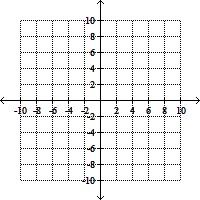
A. 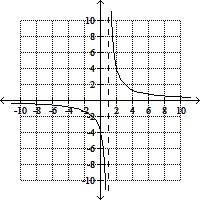
B. 
C. 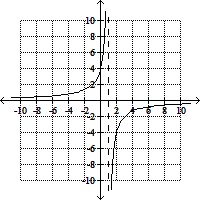
D. 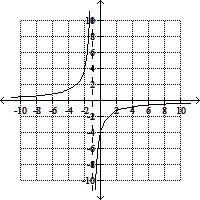
Answer: D
You might also like to view...
Solve.A ball is thrown downward with an initial velocity of 28 meters per second from a cliff that is  high. The height of the ball is given by the quadratic equation
high. The height of the ball is given by the quadratic equation  where h is in meters and t is the time in seconds since the ball was thrown. Find the time that the ball will be
where h is in meters and t is the time in seconds since the ball was thrown. Find the time that the ball will be  from the ground. Round your answer to the nearest tenth of a second.
from the ground. Round your answer to the nearest tenth of a second.
A. 3.9 sec B. 2.8 sec C. 3.0 sec D. 2.9 sec
Use the first derivative test to determine the location of each local extremum and the value of the function at that extremum.f(x) = 4xe-x
A. Local maximum at 
B. Local minimum at 
C. No local extrema
D. Local minimum at 
Graph the function using its vertex, axis of symmetry, and intercepts.f(x) = x2 - 4x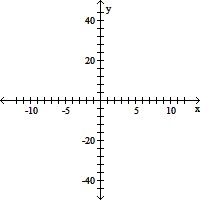
A. vertex (-2, 4)
intercept (0, 8)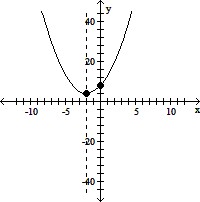
B. vertex (2, -4)
intercepts (0, 0), (4, 0)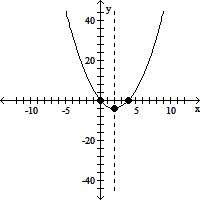
C. vertex (-2, -4)
intercepts (0, 0), (-4, 0)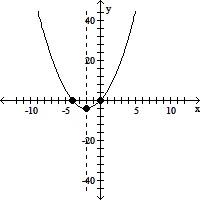
D. vertex (2, 4)
intercept (0, 8)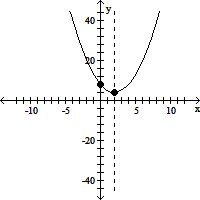
Solve the problem.The motion of a spring-mass system is described by the equation  where y is the distance in feet from the equilibrium position and t is time in seconds. If the weight is 22 feet from the ceiling in a state of equilibrium, find the closest the weight will ever be to the ceiling.
where y is the distance in feet from the equilibrium position and t is time in seconds. If the weight is 22 feet from the ceiling in a state of equilibrium, find the closest the weight will ever be to the ceiling.
A. 22 ft B. 20 ft C. 24 ft D. 2 ft